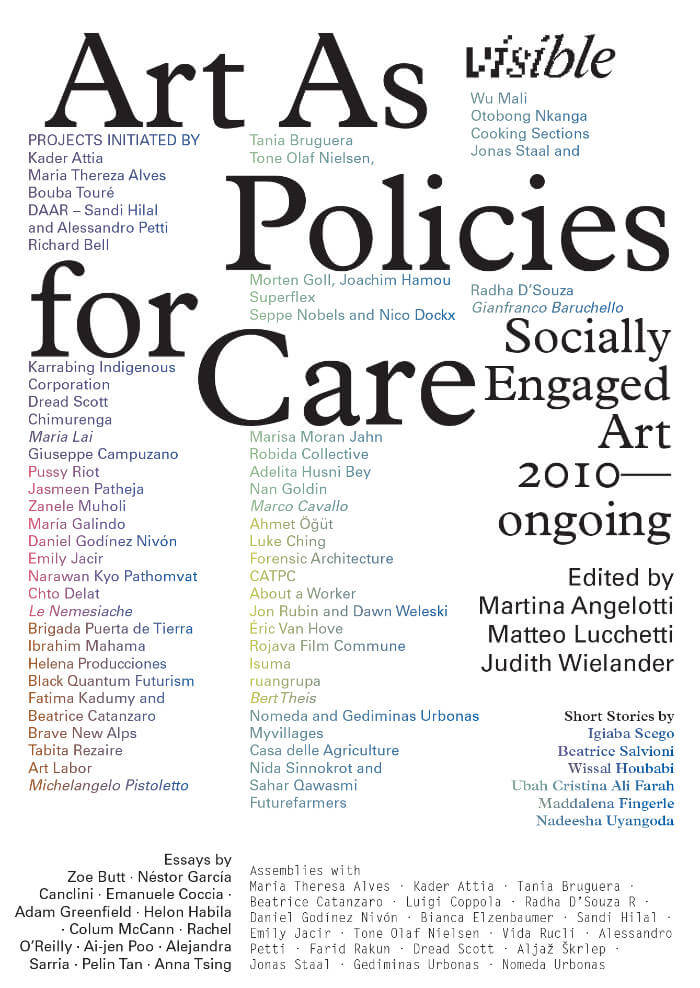Cooking Sections
Cooking Sections

Salmon: A Red Herring
Salmon: A Red Herring questions what colours we expect in our "natural" environment. It asks us to examine how our perception of colour is changing as much as we are changing the planet. Adapted into the eponymous Turner Prize-nominated exhibition at Tate Britain, this book launched an international campaign against salmon farming.
In 2018, the artist/activist duo Cooking Sections heard of a sparrow that had turned bright pink on the Isle of Skye. So began an odyssey-like investigation into where it went, who was responsible, and what it signalled about its surrounding ecology. The pair spoke to fishermen in Mexico, where shrimp are turning grey, interviewed beekeepers in Brooklyn, who reported red-coloured honey, and investigated the Nornickel factory in Norilsk, Russia, where blue fog and black snow are industrial byproducts. Their findings are presented as a detective story for the era of environmentalism: a wildly inventive book and an exhibition at Tate Britain.
The book, Salmon: A Red Herring, shows how design can address the fragility of our food systems and how colour configures our economies. It is a visceral and visual examination of aesthetic manipulation, industrial farming, and environmental degradation, a seminal intervention in colour theory. In turn, Cooking Sections—the recently announced winners of the Harvard Wheelwright Prize—use it to launch a new global campaign against fish farming.
As COVID makes visible the fragility of our food systems and the need for an overhaul of environmental regulations, this work is now more relevant than ever. The publishers describe it as "Michael Pollan meets Gilbert and George" and Cooking Sections say it is "intended as a Ways of Seeing for the era of environmental reassessment".
Cooking Sections examines the systems that organise the world through food. Using site-responsive installation, performance and video, they explore the overlapping boundaries between art, architecture, ecology and geopolitics. Established in London in 2013 by Daniel Fernández Pascual (born in 1984) and Alon Schwabe (born in 1984), their practice uses food as a lens and a tool to observe landscapes in transformation.
Forewords by Bruno Latour, Hans Ulrich Obrist, Hannah Landecker, David Zilber.
And more

Visible – Art as Policies for Care – Socially Engaged Art (2010-Ongoing)
Judith Wielander, Matteo Lucchetti and 1 more
Comprehensive documentation on 43 outstanding socially committed artistic projects over the past twenty years.
The book Visible: Art as Policies for Care. Socially Engaged Art (2010–Ongoing) was born from the editors' enduring curatorial research into long-term situated art projects that exist within the social sphere, beyond the logic of the traditional art system, confronting unjust systems, and prefiguring novel visions for living together.
The socially engaged art projects collected here hold a significant place in the constantly evolving trans-local art scene of the past two decades, and form a lens through which to observe changing realities and their urgencies; they redefine the concept of art in light of current climatic, political, and social changes and foster the dematerialization of the artwork in processes that become policies of culture and care.
The publication is composed of four main sections with overarching photo documentation—interviews, essays, forums, and short literary texts—collecting contributions by artists, anthropologists, novelists, activists, and sociologists, such as Anna Tsing, Wissal Houbabi, Maria Thereza Alves, Tania Bruguera, Jonas Staal, DAAR - Decolonizing Architecture Art Research, Giuseppe Campuzano and Nan Goldin.
Edited by Martina Angelotti, Matteo Lucchetti, Judith Wielander.
Contributions by Ubah Cristina Ali Farah, Maria Thereza Alves, Martina Angelotti, Art Labor, Kader Attia, Gianfranco Baruchello, Richard Bell, Black Quantum Futurism, Brave New Alps, Tania Bruguera, Zoe Butt, Giuseppe Campuzano & Miguel López, Beatrice Catanzaro & Fatima Kadumy, CATPC, Marco Cavallo, Chimurenga, Luke Ching, Chto Delat, Emanuele Coccia, Cooking Sections, Luigi Coppola, Radha D'Souza & Jonas Staal, DAAR / Sandi Hilal & Alessandro Petti, Nico Dockx & Seppe Nobels, Maddalena Fingerle, Forensic Architecture, Futurefarmers, María Galindo, Néstor García Canclini, Daniel Godínez Nivón, Morten Goll, Adam Greenfield, Raphaël Grisey & Bouba Touré, Helon Habila, Helena Producciones, Sandi Hilal, Kim Hou, Wissal Houbabi, Adelita Husni Bey, Emily Jacir, Karrabing Film Collective, Selom Kudjie & Ibrahim Mahama, Zacharias Kunuk, Maria Lai, Le Nemesiache, Carolina Lio, Matteo Lucchetti, Wu Mali, Colum McCann, Marisa Morán Jahn, Zanele Muholi, Myvillages, Paolo Naldini, Jesús "Bubú" Negrón, Tone Olaf Nielsen, Otobong Nkanga, Rachel O'Reilly, Ahmet Öğüt, P.A.I.N., Jasmeen Patheja, Narawan Kyo Pathomvat, Michelangelo Pistoletto, Ai-jen Poo, Pussy Riot (Nadya Tolokonnikova), Sahar Qawasmi & Nida Sinnokrot, Tabita Rezaire, Robida, Rojava Film Commune, ruangrupa (Farid Rakun), Jon Rubin & Dawn Weleski, Beatrice Salvioni, Alejandra Sarria, Igiaba Scego, Dread Scott, Superflex, Pelin Tan, Bert Theis, Anna Tsing, Nomeda & Gediminas Urbonas, Nadeesha Uyangoda, Éric Van Hove, Judith Wielander, Andrea Zegna, Anna Zegna.

Politics of Food
This publication critically assesses and illuminates ways in which the arts can confront food-related issues, through the contributions of artists, anthropologists, activists, agronomists, and chefs.
The last decade has witnessed a proliferation of artists and artist collectives interrogating the global politics and ethics of food production, distribution, and consumption.
As an important document of new research and thinking around the subject, this book, co-published with Delfina Foundation, contains reflections on food by prominent artists, anthropologists, and activists, among others. Interviews with chefs, policy makers, and agronomists critically assess and illuminate the ways the arts confront food-related issues, ranging from the infrastructure of global and local food systems, its impact on social organization, alternatives and sustainability, climate and ecology, health and policy, science and biodiversity, and identity and community.
Contributions by Kathrin Böhm, Center for Genomic Gastronomy, Leone Contini, Cooking Sections, Chris Fite-Wassilak, Amy Franceschini & Michael Taussig, Fernando García-Dory, Melanie Jackson, Dagna Jakubowska, Nick Laessing, Jane Levi, Candice Lin, Poppy Litchfield, Christine Mackey, Taus Makhacheva, Elia Nurvista, Senam Okudzeto, Thomas Pausz, Daniel Salomon, Vivien Sansour, Standart Thinking, Serkan Taycan, Lantian Xie, Raed Yassin.